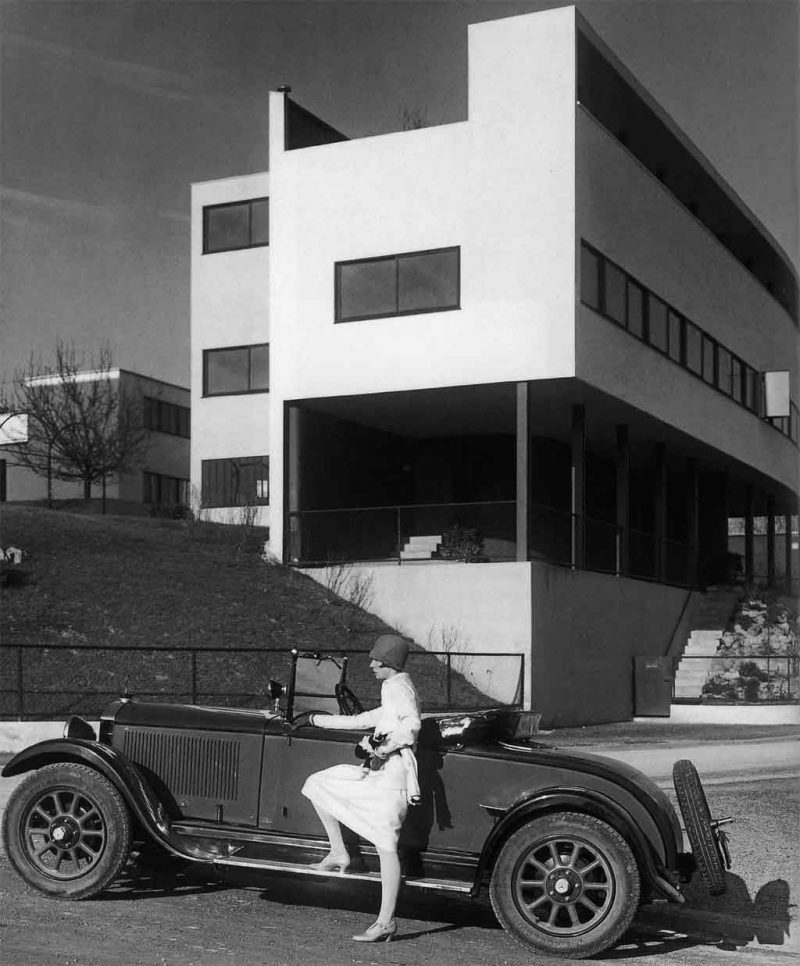We Are Stuck In The 1920s
Western Civilization has become a series of clichés. These function as symbols for response from the crowd. When you need to show wealth and refinement, play Mozart; if you need reckless youth, bring out the Harley, leather jacket, and Jack Daniels; if you want something futuristic, bring out the same sad designs and ideas from the 1920s.
Most do not realize this, but our architecture has been stuck in a dead-end loop since that time. Then the first “modern” houses appeared, with “radical” (i.e. against the grain) designs featuring basic geometric shapes and harsh, boxy concrete, steel, and glass exteriors.
That era also established the Bohemian arc that is now familiar to us: iconoclasts drop out, get hairy and dirty, drink and take drugs, shallowly adopt other cultures, have promiscuous and orientation-neutral sex, then self-destruct in an elaborate tribute to their own egos. This trope signals to others to follow these new leaders.
We also received our new political alignment. One party stood for the old order, as best they could, and the other became an alliance of the disaffected, partnering with the cool Bohemians. The notion of a counter-culture, an underworld of people moving outside the present system, emerged.
All of these things have become clichés, and we repeat them again and again. The futuristic designs of today look roughly like the 1920s version, our hipsters are essentially 1920s Bohemians straight out of The Sun Also Rises, and our politics looks a lot like The Great Gatsby, with the new arrivals challenging The Establishment.
We even play out the same tired dramas in our heads. We re-live the French Revolution with our films and plays, but to that we add the Bohemian shallow cultural adoption. This permeates all of our stories about ourselves, making us idealize otherness:
In the film, after the Jews leave, the city celebrates with fireworks. But life soon gets worse. International trade and the economy suffer, and the city’s beloved cafes get turned into simple beer halls.
This film presented to Hitler an idea that he should have followed, namely that relocation is a better action than mass murder. However, it also presents every cliché of our modern era: we have no culture of our own, we are helpless and cannot provide for ourselves, and we become ignorant hick-bumpkins lost in our vices.
That 1920s mentality shines through in all of our movies today with black presidents, our assumption that without ethnic food life would be meaningless, and our tendency to refer to those who defend the past as ignorant and hateful “uneducated” dirt people deplorables.
Our civilization hit its stop point in the first world war. Although people could not really articulate it, they sensed that we had entered a terminal spin where we were fighting for illusions and yet could not escape those illusions because we needed them. Many people simply gave up, realizing that democracy had wrecked yet another society.
Since that time, we have been re-living the loop. We rebel against our illusions, only to find that rebellion drives us further into illusion. Like an abusive family, the illusion then lures us back in as we have nothing else, since forces of the illusion — democracy, pluralism, equality, diversity — have replaced our civilization.
If nothing else becomes clear, it is that we must escape this loop by finding an alternative to the illusion. We cannot rebel against insanity with more insanity, and democracy — the reason we fought that first world war — simply affirms more of its own insanity.
Even more, we should take a look at these clichés and see what they represent. If our futuristic architecture is junk, and our Bohemians are just lost idiots, maybe we do not believe in our future, and that is where we must start investigation for how to achieve our goal, restoring Western Civilization.
Tags: architecture, futurism, illusions, media, the loop










